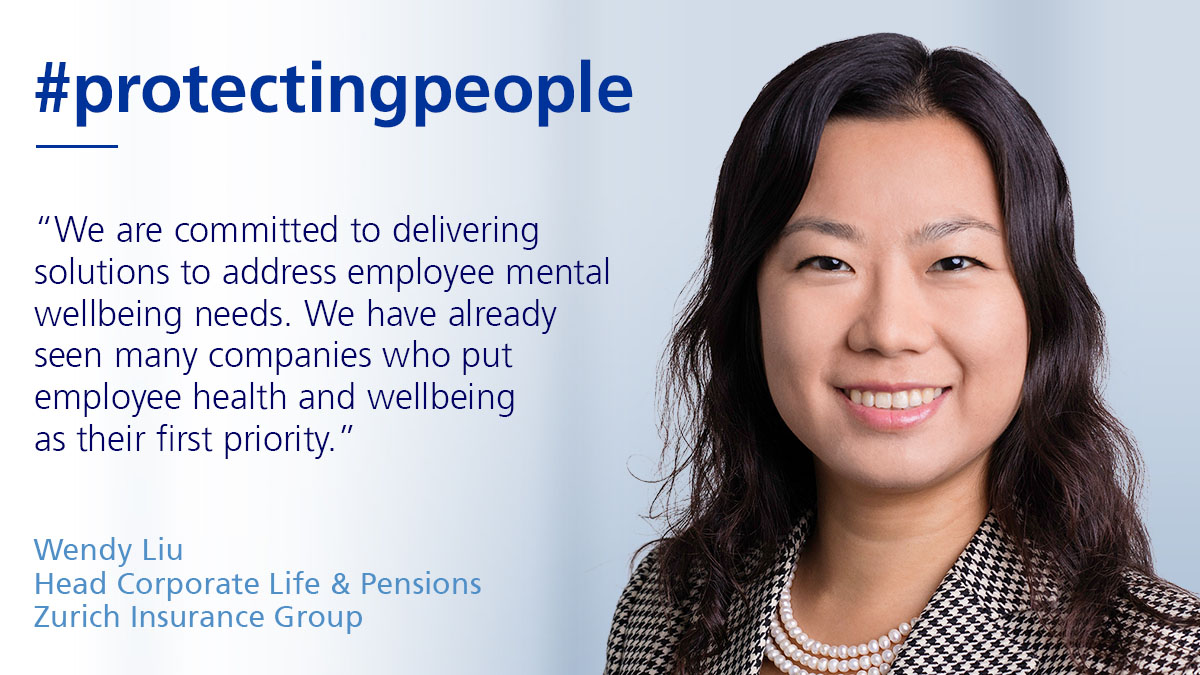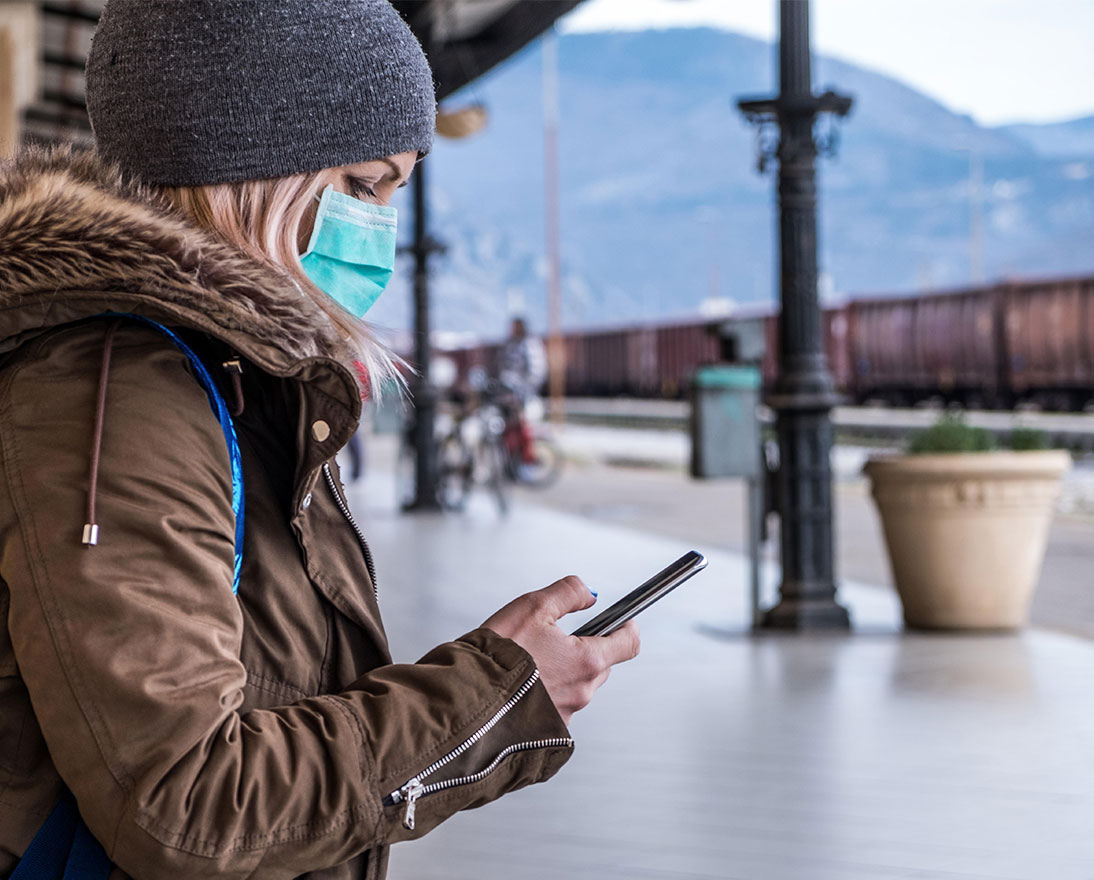Brave new world
Future of workArticleMay 25, 20207 min read
How to build individual resilience after Covid-19
When we emerge from the immediate crisis, what will life be like? It’s the answer we all want. The Danish philosopher Søren Kierkegaard once said, "Life can only be understood backwards, but it must be lived forwards." In other words, we should focus on the future.
Time will lend perspective to Covid-19, just as it did to the 2008 financial crisis, but we must first look ahead, plan the recovery, and build resilience to ensure we are prepared for the next challenge – be it climate change, biodiversity, cyberattacks, or even another pandemic.
One thing is certain: the long-term impact of Covid-19 will be different for each of us. Depending on the lives and careers that we had before the pandemic, and the countries where we live, some of us will be better protected than others.
The effects we can expect from Covid-19 will be physical, mental, social, and financial. Some people will experience all of these effects, others a combination or just one. But none of us will be spared, and the implications for workforce health and protection are profound.
Research from Zurich Insurance Group (Zurich) and the Smith School of Enterprise and the Environment at the University of Oxford (Oxford) has shown that the world of work is already changing rapidly. It is increasingly non-linear, fragmented, prone to shortfalls and vulnerabilities.
Gig workers, part-time workers, the sharing economy and a rise in people changing jobs: all point to a more fluid and uncertain marketplace with significant risks for workers’ finances and mental health.
Covid-19 exacerbates and adds to these risks, reinforcing the need for the types of financial protection highlighted in studies such as Zurich-Oxford’s Perceptions on Protection.
Physical and mental health, and the financial security that comes from dependable employment, are now more important than ever. Covid-19 underlines that life can change in an instant – physical health, certainly – and that we are only ever one event away from a loss of income, career interruption, or severe mental stress.
In a press release issued in mid-May, the World Health Organization said we must urgently increase investment in mental health services or risk a massive rise in mental health problems as a result of the pandemic.
According to Mind, the mental health charity, FTSE 100 companies that prioritize employee engagement and wellbeing outperform the rest of the FTSE 100 by 10 percent. Furthermore, the organization Engage for Success, which promotes employee engagement, found that companies who focus on wellbeing will see a substantial increase in loyalty and commitment from their workforces.
If there is one positive from Covid-19, it’s the humanitarian response from many companies and communities, backed by the huge government-led relief programs to protect lives and jobs. As well as supporting their staff, companies such as Zara, Nivea and Dyson have even switched production to manufacture sanitizers and vital medical and protective equipment.
This says much about collective responsibility for the wellbeing of every member of society and that the future of work is about managing risks and building individual resilience through a multi-stakeholder approach.
From studies into the effects of previous pandemics, such as SARS and MERS, we know that Covid-19 is likely to increase levels of anxiety and depression, which we must combat with welfare and protection schemes. For this reason, as well as the vulnerabilities exposed by Zurich-Oxford’s research, the scope for workforce protection is now much wider.

As Wendy Liu, head of Zurich Corporate Life & Pensions, says: “Wellbeing has not only become more important, its scope is also expanding. It goes beyond the office into private life. Among other things, it should include protection for family members, which is something we already provide for Zurich employees.”
Liu adds that mental health is one of the pillars of Zurich’s holistic wellbeing framework, along with physical, social, and financial wellbeing. Zurich offers support through help programs that go beyond “insured interests”. She says that a sense of helplessness is a damaging side effect of Covid-19, compounding the effect from loss of income and employment that many will suffer from.
She adds that Zurich has launched schemes in Ireland and Australia to raise awareness of mental health and offer support that goes beyond "insured interests.” Liu point out that a sense of helplessness is a damaging side effect of Covid-19, compounding the effect from loss of income and employment that many will experience.
What this means for insurance is clear. “More attention will be paid to mental health issues,” says Liu, “we have already seen many companies place employee health and safety as first priority. It’s a trend that’s likely to continue and develop post-Covid-19.”
When it comes to physical health, experience is a telling factor. One of the key findings in Zurich-Oxford’s research on income protection gaps is that personal experience of a negative health event made workers more likely to purchase income protection insurance. And because this research has shown that less than 50% of the workforce is informed about insurance, there is also a knowledge gap. This is particularly the case for workers with non-traditional contracts.
When the Zurich-Oxford research team polled 11,000 people in 11 countries on income protection, one in five said they could survive less than a month without income, and three in five said their savings would last less than six months. Covid-19 is bringing hardship and job losses, and it is both a brutal reminder that we need to think ahead and an opportunity to make good on the lessons from research.
Another insight from Zurich-Oxford’s research is our growing dependence on technology, which of course is enabling the huge shift to homeworking during the pandemic. Workers today want to choose where, when and how they work, which is a reflection of our increasingly agile workforce, but there must also be sufficient protection.
In a recent survey by Staples, 90 percent of employees said they want more workplace flexibility, and 67 percent said they would consider looking for a new job if their current employer was inflexible. If it remains to be seen if homeworking becomes the norm, the current jump from office to home will prompt companies to look more carefully at flexible ways of working that benefit employees, employers and customers alike.
Remote working should be a choice rather than a necessity, otherwise it may lead to stress and reduced productivity. Also, as flexibility and mobility increase, there is a greater risk of cybercrime if the normal safeguards are removed.
According to Nadia Younes, global head of employee experience, diversity and wellbeing at Zurich, “What we have now is not an example of normal flexible working, because it’s not set up for success. It’s set up for survival. However, flexibility has certainly enabled business continuity during the crisis and will be vital for economic recovery.”
Younes says that whatever changes are accelerated by our fight against Covid-19, we must not let flexibility turn into vulnerability – and we should reconsider what we mean by work-life balance. “It should be mutually beneficial,” says Younes, “so that flexibility for such things as hours or location will help both employees and employer. Everyone should know what’s required in this equation to stay engaged, productive, and resilient.”
We must also ensure that the concept of wellbeing embraces gender equality, diversity, and inclusion in all its forms. Underlining the point, the Perceptions on Protection survey polled 16,500 people and found marked gender imbalances in terms of both flexibility and vulnerability. Notably, only 34% of women were found to supervise other employees. Women are also less aware of insurance and more vulnerable to the changing world of work.
Nor must we lose sight of age demographics. Because people are living longer, we must provide ‘whole-of-life’ protection that affords financial and health protection throughout the vicissitudes of our working lives and into old age and retirement.
Everyone wants a quick return to ‘normality’ – a word we’re hearing repeatedly. But for those who can see beyond this crisis, there’s also a message of hope and optimism: we can ‘build back better’. Agile workforce protection and inclusion must be a key part of that future.





